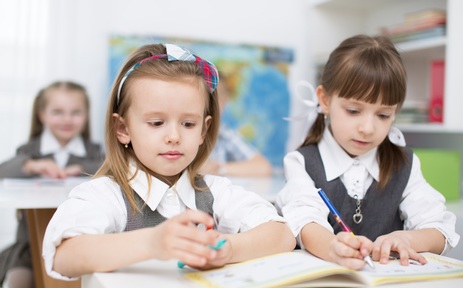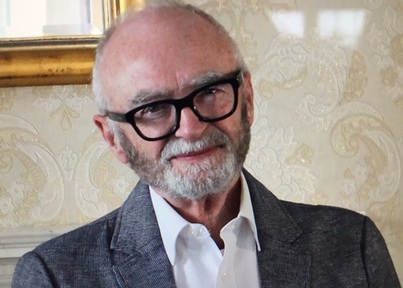Growing number of nurseries ditching plastic toys for sticks and mud
An increasing number of nurseries are ditching colourful, plastic toys and going down the route of offering children natural resources to play with such as sand, water and sticks that don’t constrict play or direct it in any way.
![]() Acorn Childcare
Acorn Childcare
This decision to spurn plastic toys started on a minor scale with heuristic play, a term coined by Elinor Goldschmeid in the 1980s. Heuristic play describes the activity of children when they are given real objects to play with instead of toys. Advocates of heuristic play claim it stimulates all the senses.
Many nurseries have adopted heuristic play by creating a treasure basket full of objects from the real world made of material other than plastic. However other nurseries are now going all the way and getting rid of plastic toys altogether.
Tops Day Nurseries, a chain of around 15 nurseries in the south of England, follows the ethos of Elizabeth Jarman, who trains nurseries and schools in developing good learning environments.
The more toys do, the less a child does
Ms Jarman believes “the more toys do, the less the child does. The more the child does, and plays and engages, the more their brain develops and the more potential they will have as they grow up.”
With this mind, the nursery chain is gradually phasing out its bright, plastic toys and instead encouraging children to play with natural objects such as sand, mud, sticks and stones.
Karen Thurlow, marketing manager of Tops Day Nurseries says: “There are fundamental reasons why it’s good for our children to get muddy, wet and explore with sticks and stones, and why it’s good for children to play under tables and stand while they paint. It’s also the reason why we are getting rid of our bright plastic toys and furniture and reducing clutter.
“This means ensuring we have open ended resources available all the time, such as natural objects, tubes, rolls, bricks, planks, textured materials, wheels, water, sand, mud, sticks, shells, gourds, stones, flowers, pestles and mortars, bowls, funnels, logs, blocks, boxes and crates.”
![]() Tops Day Nurseries
Tops Day Nurseries
Tops Day Nurseries has also found that children at its nurseries find it easier to focus and are calmer after spending time with nature. Consequently, says Ms Thurlow, “we bring nature inside too, and encourage children to be outside amongst nature as much as possible, even in the rain.
“We plan activities with this in mind, such as letting them go bare foot, letting them explore in the mud kitchen, and having an outside tap.”
Outdoor learning is central to the ethos of Acorn Childcare, a group of nine nurseries in Milton Keynes and the Northampton area.
Its founder, Zoe Raven is determined to get children out playing in the natural environment as she says “children today often see the world through TV and computer screens and car windows. It is so easy to put them in front of computer screens”.
“It is very physical when they are doing outdoor learning and they are out in the fresh air. They learn about science and the effects of the weather. They build dens and they are allowed to get dirty.”
There is a very clear understanding across the nursery sites at Acorn Childcare that the preference is for high quality toys and equipment made of natural materials.
Good practitioner worth more than expensive toys
Ms Raven says: “We don’t like plastic toys and we try not to have the kind of toys that children have at home. We love everything in the community playthings range, and materials which have open-ended play potential. We also like role play resources which are realistic (not multi-coloured plastic cups and saucers).”
However she believes: “It’s how you use materials and equipment, rather than what you have, that makes all the difference. A skilful practitioner is worth more than any amount of expensive toys and sometimes less is more!”
Similarly Sharston Nursery in Wythenshaw, Manchester believes children thrive on imagination and open-ended play.
A spokeswoman for the nursery says: “As a result, our Sharston Nursery provides children with a range of natural objects such as, pebbles, seashells, fir cones and cardboard boxes as we believe this enhances children’s natural curiosity.
“Children have an impulse to touch, fill, dump and gather objects and as such, heuristic play is a way of offering children a range of natural objects to explore freely.”
It has also decorated the nursery in neutral tones as it believes bright primary colours can lead to children becoming over stimulated and displaying negative behaviour.
Children spend all day climbing trees and playing with sticks
Beyond the Walls Outdoor Nursery, one of just a handful of outdoor nurseries in the UK, has gone even further still and has no toys, plastic or wooden and no computers for the children to use.
![]() Beyond the Walls Outdoor Nursery
Beyond the Walls Outdoor Nursery
At the nursery set within Roddlesworth Woods, in Tockholes in Lancashire, the children spend all day in the woods climbing trees and playing with sticks.
If they need the toilet, there is a ‘bog in bag’ and a potty and if they need an afternoon nap they can curl up in a sleeping bag in a tent or in the warmer months in a hammock.
Lead practitioner, Naomi Suggett, who believes this is the best way for children to use their imagination and be creative says: “There are rope swings, trees to climb and streams where they can go fishing with nets. We do have activities for them to do but mostly we like them to lead their own play and use their imagination. They will do things like sit on a branch and pretend it’s a motorbike.
“Through the changing of the seasons we embrace each new challenge with a determination to fully and wholeheartedly take advantage of all that nature provides; in spring, the fascination of a spider web wet with dew, sun breaking through the canopy of the trees in summer, the crunch of fallen golden autumnal leaves and the enchanting beauty of a cold crisp winter’s day, hunting for hidden treasure.”
Latest Features News
 31-Oct-19
Reward stickers at nursery accused of having a 'dark side'
31-Oct-19
Reward stickers at nursery accused of having a 'dark side'
 18-Sep-19
Neuroscientist tells nurseries to ditch stereotypes as they create gendered brains
18-Sep-19
Neuroscientist tells nurseries to ditch stereotypes as they create gendered brains
 03-Sep-19
School readiness: Nursery chief says four-year-olds are too young for 'big school'
03-Sep-19
School readiness: Nursery chief says four-year-olds are too young for 'big school'
 24-Jul-19
Nurseries 'fed up' of early years being used as political football, says ex-children's commissioner
24-Jul-19
Nurseries 'fed up' of early years being used as political football, says ex-children's commissioner
 21-Jun-19
Forest school experiment: How my tidy preschooler went feral for the day
21-Jun-19
Forest school experiment: How my tidy preschooler went feral for the day